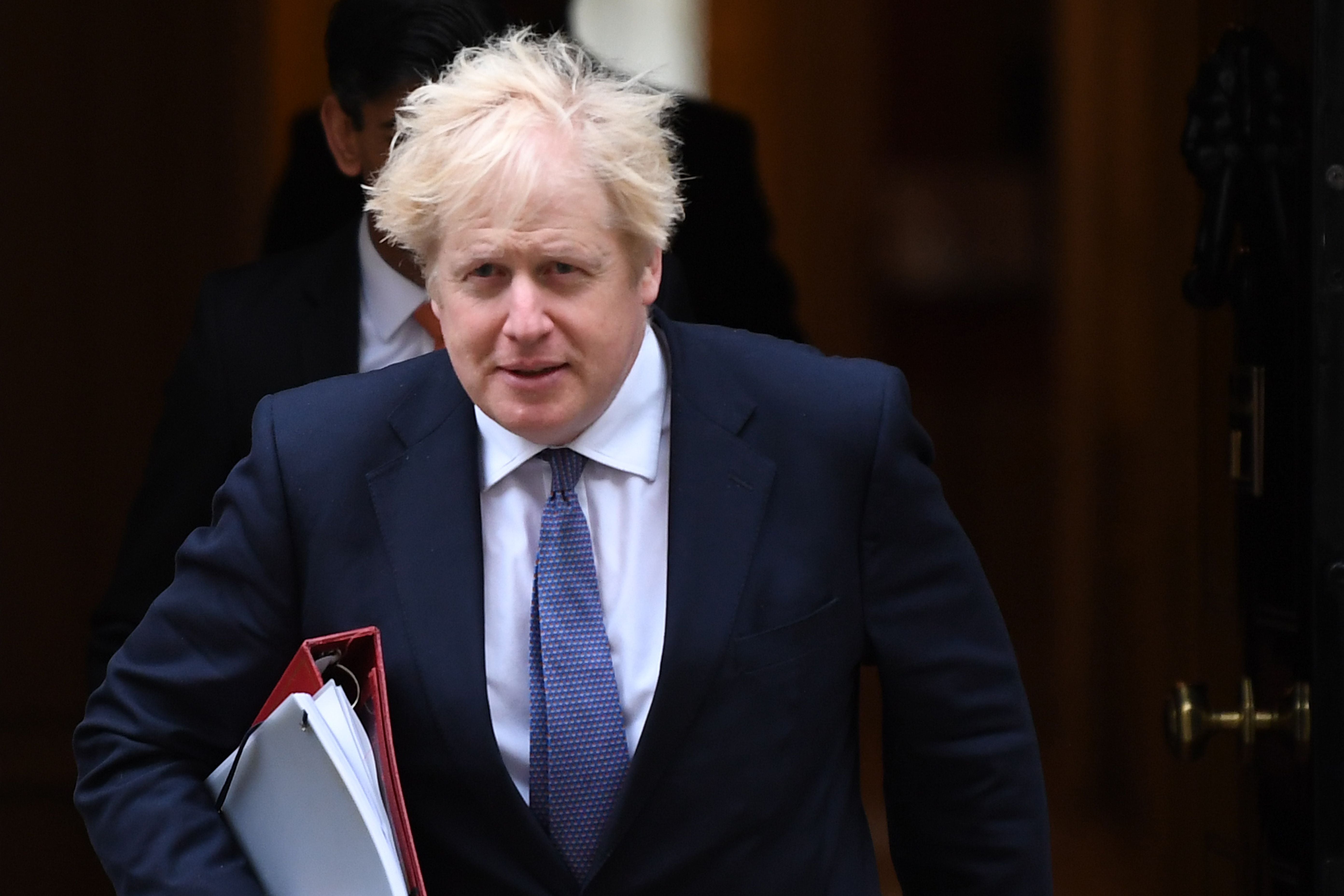Boris Johnson now faces serious opposition on both sides – from Labour and from his own rebels
Keir Starmer ended the cross-party approach to coronavirus as the prime minister suffered a big rebellion of his own MPs, writes John Rentoul


Suddenly the pretence of a consensus approach to coronavirus has been abandoned. Keir Starmer ended Labour’s policy of constructive opposition at 5pm, holding a news conference to announce his demand for a two- or three-week “circuit-break” lockdown. Then Conservative MPs voted against their own government at 6pm, in a symbolic vote as a warning that they think the restrictions have gone too far already.
The prime minister was sufficiently alarmed by the rebellion in his own ranks that he made an emergency appearance, by Zoom and in person simultaneously, at a hastily convened meeting of the 1922 Committee of Tory backbenchers just before the vote. It did not prevent 44 of his MPs defying the whip to oppose the 10pm early closing time for pubs and restaurants in most of England.
The vote has no effect, because the 10pm law will be replaced at midnight tonight by the three tiers of restrictions for different parts of the country, depending (roughly) on the level of infection. That law was approved without a division a few minutes before the grand but meaningless gesture.
It was a meaningless vote in that it will not change the law, but it was meaningful in lighting up the other side of the vice that Boris Johnson is now in. The shape of politics has become clearer tonight. Starmer has taken a definite position, siding with public opinion and the Scientific Advisory Group for Emergencies (Sage) in wanting tighter restrictions; while an eighth of the parliamentary Conservative party has issued a warning that it will fight for what it sees as people’s freedom (even if the people don’t currently tell opinion pollsters they want it).
Johnson is in the middle, supported by enough of the public to make his position sustainable, worried about unemployment and trying to keep together a divided cabinet. Rishi Sunak had to haul him back from the brink last week: Johnson had apparently come close to agreeing to the circuit breaker that Starmer now wants, but the chancellor insisted it would cost the livelihoods of too many people.
The shape of coronavirus politics is a familiar one: an opportunist opposition, seeking to align itself with public opinion, and a government under siege from within its own ranks by its fundamentalists. Starmer today made Johnson an offer, designed to drive a wedge into the Tory split, which extends all the way from the back benches to the cabinet: if the prime minister brought in a “circuit break”, he would not need to worry about his rebels because Labour would support him.
It was the same embrace David Cameron offered Tony Blair when Blair in his third term tried to legislate for a new round of schools reform that most Labour MPs hated.
It was not a particularly dangerous tactic to Blair – the threat to him came from his chancellor – but it helped Cameron pose as a national-interest leader. The situation will become dangerous to Johnson only if Starmer is able to make common cause with the Tory rebels. For a moment it looked as if the 10pm closing time might have offered such an opportunity, but when it came to it, Labour could not make the case simultaneously for a less restrictive policy and a more restrictive one.
The last opposition leader to manage the trick was John Smith, a pro-EU Labour leader who managed to vote with anti-EU Tories against the Maastricht Treaty.
Starmer does not need to go into the same voting lobby as Sir Graham Brady and Steve Baker, however, to cause Johnson difficulties, and to promote his own reputation. As Starmer said at his news conference, the government’s three-tier system will probably fail to control the virus, and the prime minister will be forced to take further measures anyway.
For an opposition leader, being able to say, “I told you so,” is a good part of the moral high ground to occupy.


Join our commenting forum
Join thought-provoking conversations, follow other Independent readers and see their replies
Comments